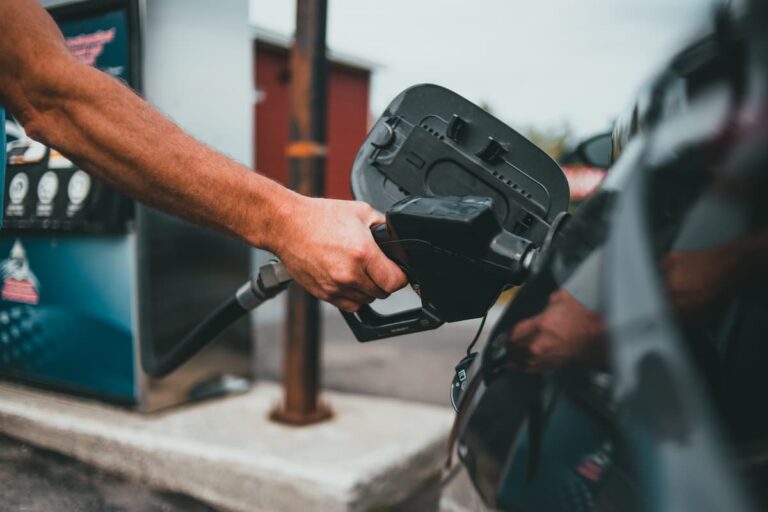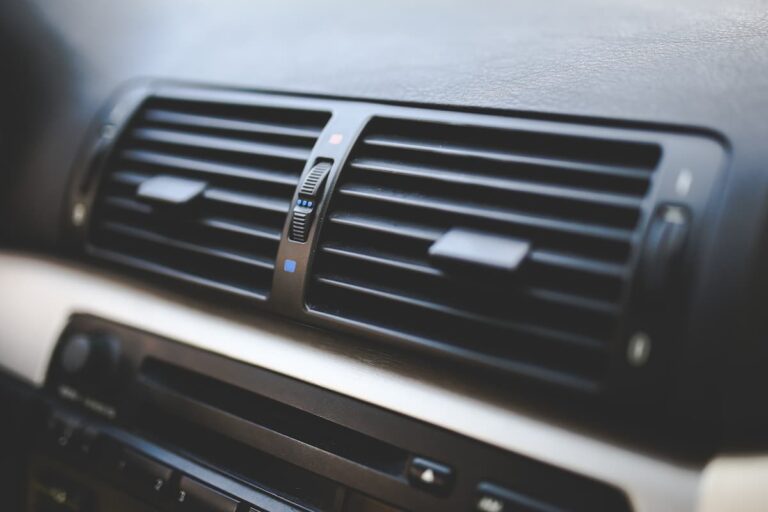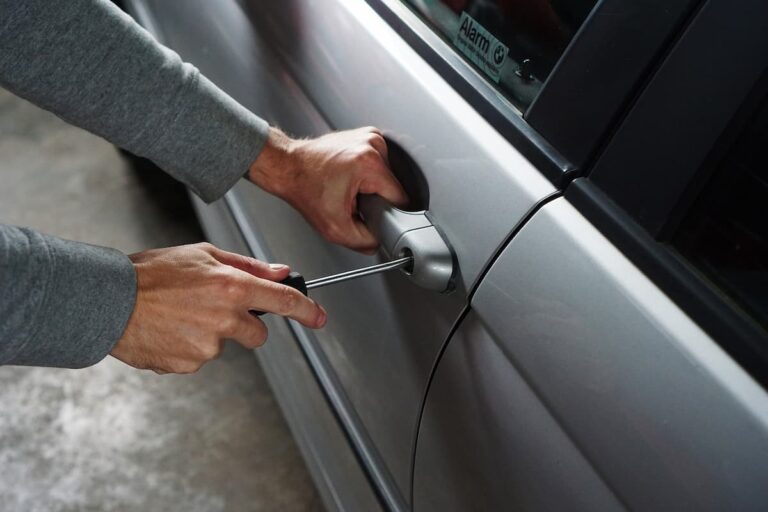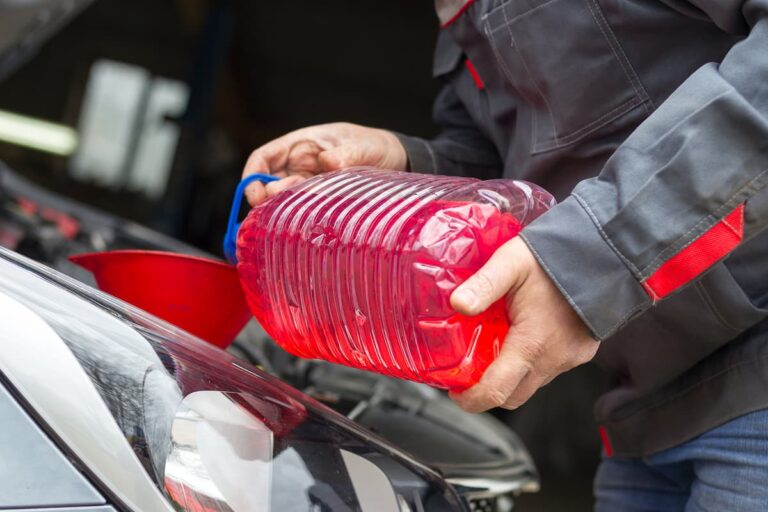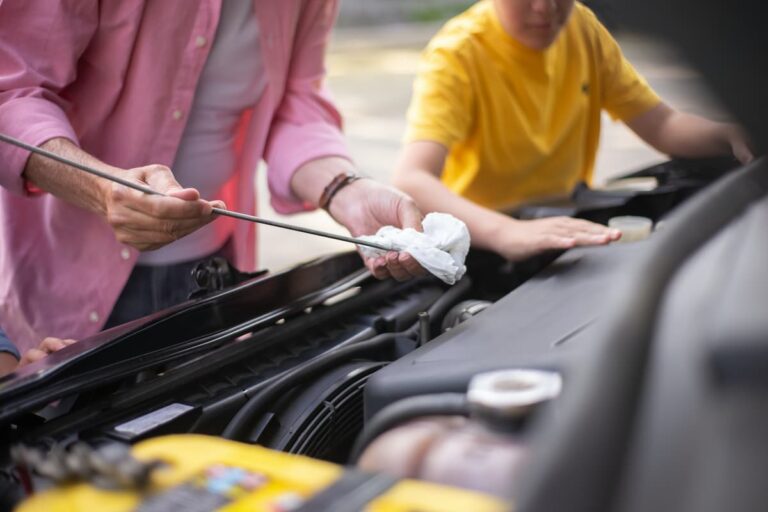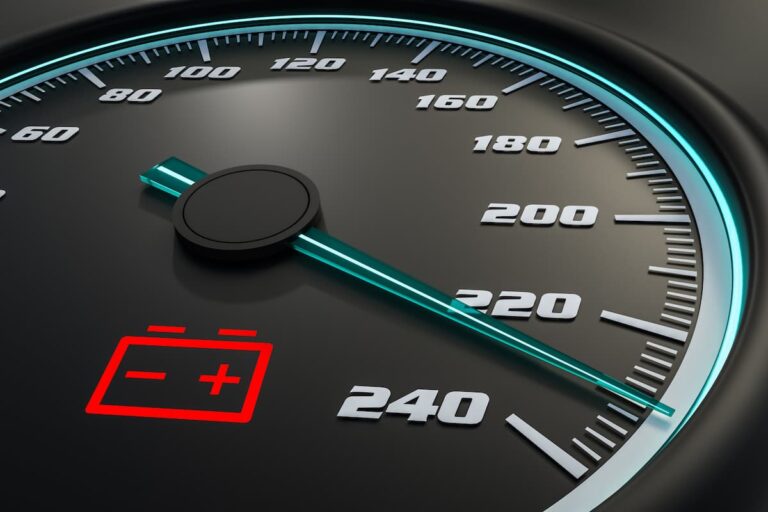Are Car And Motorcycle Spark Plugs The Same?
It’s rare to own a car and motorcycle with similar spark plugs. If you’re one of the lucky ones, you should have no problem interchanging them.
All spark plugs have the same role – to ignite the air-fuel mixture in your engine. However, whether a motorcycle plug fits in a car (or vice versa) depends on thread length and diameter, insulator design, and heat range. If the plug ticks these boxes, you should have no problem using it in either vehicle.
If, on the other hand, the plug doesn’t fit or the heat range isn’t compatible with your engine, you risk causing extensive damage.
Motorcycle spark plugs have a higher heat range (the amount of heat released) than most cars, so you’re unlikely to find them compatible.
You can check your owner’s manual to confirm the type(s) of applicable spark plugs for your engine.
How Do I Know Which Spark Plugs To Buy?
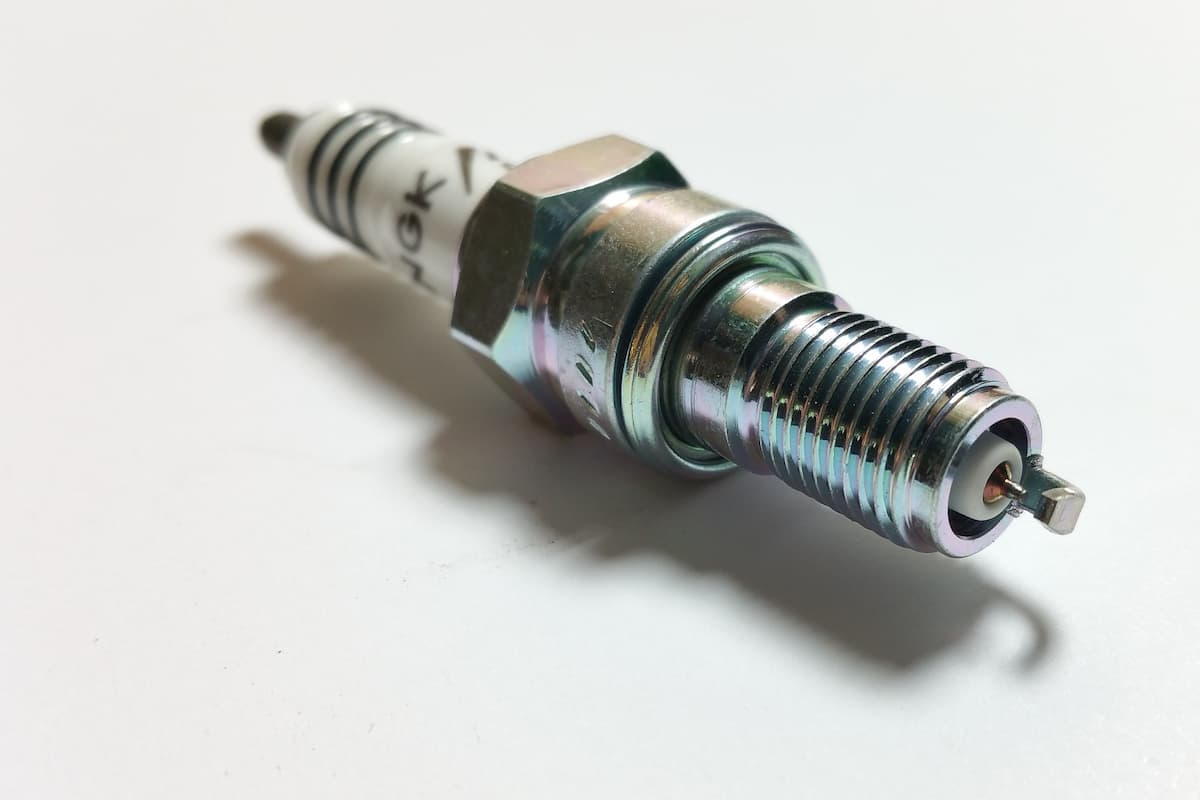
Your owner’s manual will specify the best spark plug for optimal performance.
If you don’t have an owner’s manual, consult your nearest auto parts store. They’ll likely recommend one of five spark plugs:
- Copper
- Iridium
- Double Iridium
- Platinum
- Double Platinum.
The difference between these spark plugs lies in their electrode materials.
Copper Spark Plugs
Copper spark plugs are cheaper and often used for higher performance, but they don’t last long because of their high conductivity.
Copper conducts heat quickly and holds it for a long time. However, the nickel alloy electrode in these plugs is softer than platinum or iridium and can wear out quickly.
So, while efficient, copper plugs are not reliable long term, which is why they’re best suited to older or low-voltage engines.
Platinum Spark Plugs
Platinum spark plugs are more durable than copper.
They feature a platinum disc on the center electrode, enabling them to withstand more demanding engines.
They’re better heat conductors and run at higher temperatures, helping combat the accumulation of deposits.
You should never use a platinum spark plug if your manufacturer recommends double platinum.
You won’t damage your engine, but you’ll have performance issues since the plug can’t handle the engine’s demands.
It also wears out ahead of time, taking you through a cycle of premature replacements.
Double Platinum Spark Plugs
Double platinum plugs are “leveled-up” versions of platinum spark plugs.
They have a platinum disc on the center and the side electrodes, which increases their performance and longevity.
Iridium Spark Plugs
Iridium plugs are more durable and efficient than platinum and copper, thanks to their fine wire center electrode.
The electrode in an iridium spark plug allows spark creation at low voltage.
Iridium spark plugs are also more robust, performing at much higher levels than other plugs.
However, these advantages come at a price, and they’re more expensive than copper or platinum.
Double Iridium Spark Plugs
Double iridium spark plugs are similar to double platinum plugs in that they have a disc on both the side and center electrode, making them stronger and more durable than all the options on this list.
They can survive almost any condition and have a lifespan that quadruples that of a copper plug.
Double iridium spark plugs are the most expensive, but their longevity makes up for the cost.
Can You Use Any Spark Plug As a Replacement?
It’s always best to stick with the spark plug recommended in your owner’s manual.
However, if you want to upgrade your plugs (e.g., from copper to platinum), you’ll likely have no issues.
Downgrading, on the other hand, is more problematic, as a lesser-quality spark plug can affect your engine’s performance.
It takes a while for issues to become serious, but you’re better off avoiding lower-quality spark plugs altogether.
Whether you can use a different brand is a whole other story.
Plugs from other companies pose no problems as long as they’re compatible with your engine and are of the same (or higher) quality as your previous set.
When Should You Change Spark Plugs?
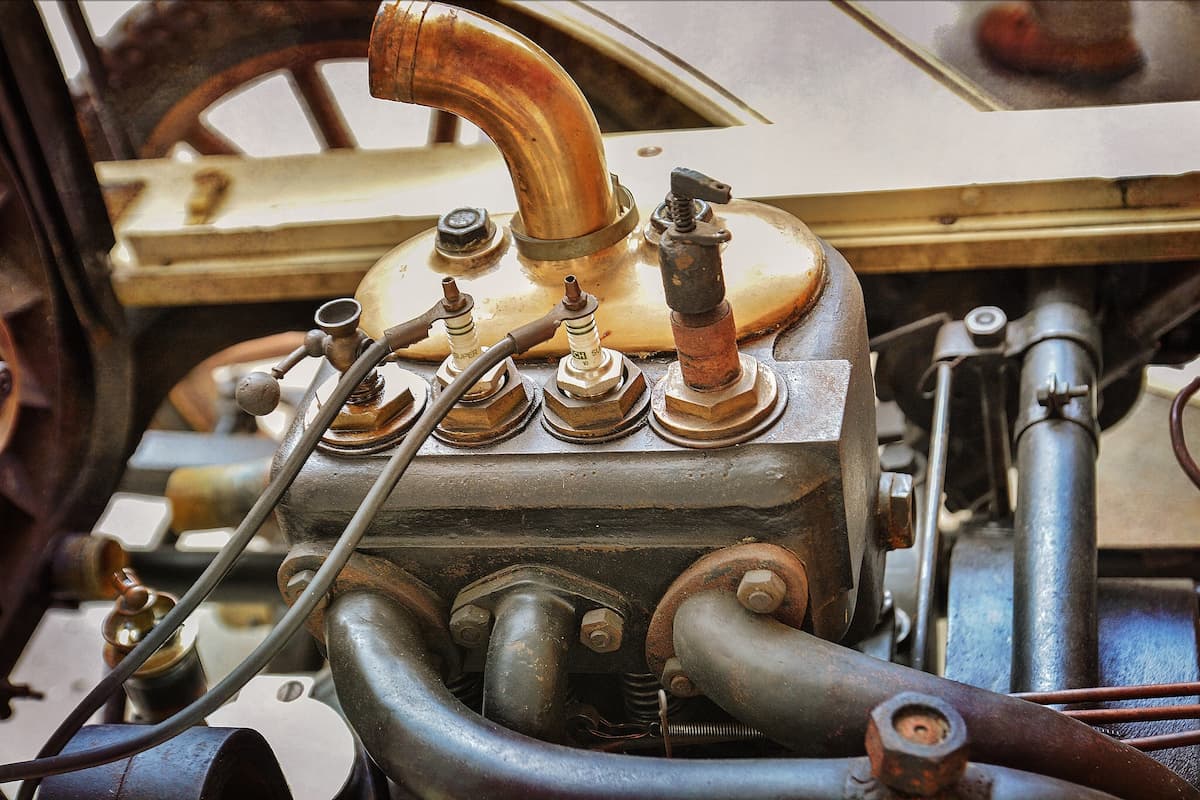
Car spark plugs last at least twice as long as motorcycle plugs.
Spark plugs in cars need to be replaced every 20,000 miles (32,000 km) for copper, up to 100,000 miles (160,000 km) for platinum, and between 100,000 and 200,000 miles (160,000-320,000 km) for iridium.
Motorcycle plugs need to be replaced every 15,000 to 20,000 miles (24,000-32,000 km).
Specific replacement intervals depend on your manufacturer and are outlined in your owner’s manual.
If you can’t find your owner’s manual, check with your manufacturer or change your plugs when they show signs of wear and tear.
You should also contemplate replacement if you experience:
- Rough idling
- Engine misfiring
- Loss of acceleration
- High fuel consumption.
To change your spark plugs:
- Turn off the engine and ensure it’s completely cool.
- Disconnect the battery’s negative terminal and clean the areas around the motor.
- Remove the spark plug wire from the bottom (don’t yank it).
- Remove the ignition coil (if equipped).
- Unscrew the old spark plug, and install the new one.
- Put back the ignition coil or spark plug wire.
Keep a close eye on your plugs if you have a high-performance vehicle, as they need to be changed more frequently.
How Much Does It Cost to Change Spark Plugs?
A set of spark plugs can cost you $16 to $100, while a single plug can cost anywhere between $2 and $25, depending on the material.
You can replace the spark plugs yourself or have a mechanic replace them. Just factor in $40 to $150 for labor if you use a mechanic.
Do Expensive Spark Plugs Make a Difference?
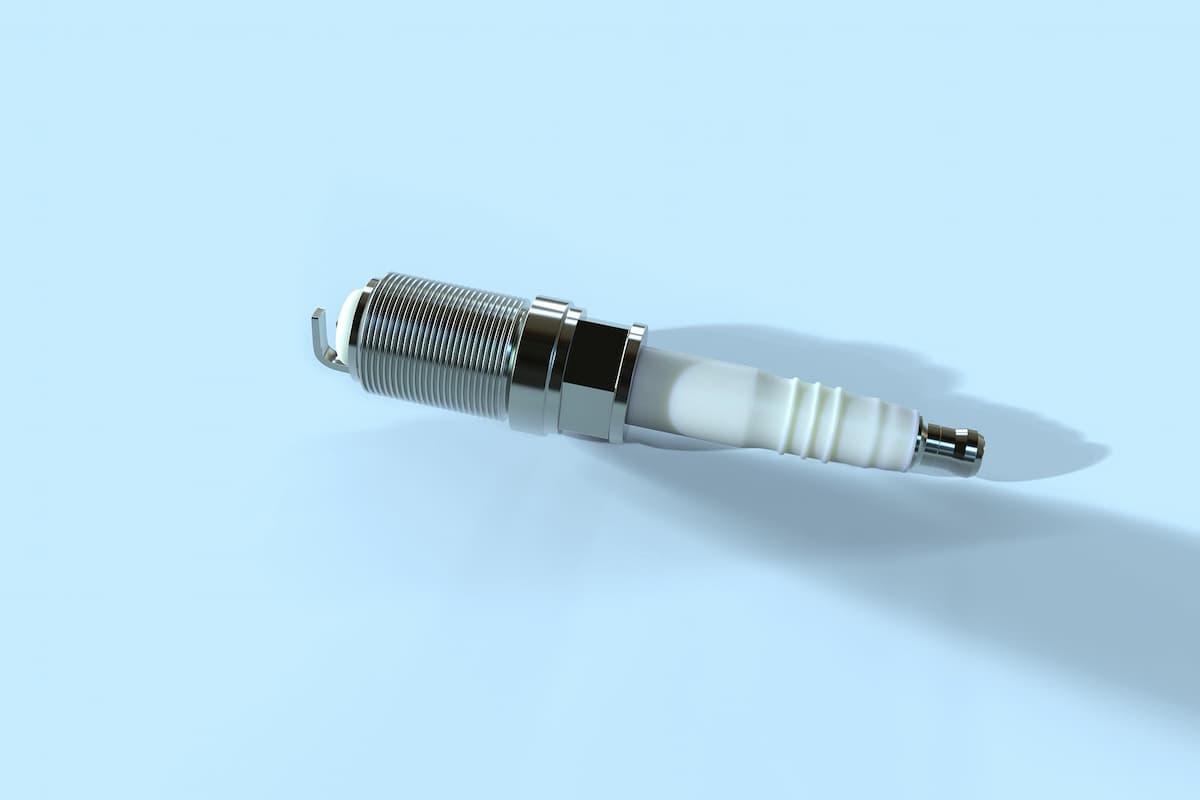
Yes. More expensive spark plugs keep the engine running at optimal levels, especially in extreme or harsh environments.
Upgrading your spark plugs won’t improve horsepower, but better plugs will help maintain engine performance, improve fuel efficiency, and require less maintenance.
Conclusion
Spark plugs come in different sizes, materials, and heat ranges.
If your car plugs are identical to your motorcycle plugs in shape, size, and materials, they’re interchangeable. If they differ in any way, avoid replacing one with the other.
Always ensure replacement plugs match or are of a higher quality than your manufacturer’s recommendation.
Also, to avoid engine problems, make sure to change your spark plugs according to the expected lifespan of your plug or as per your owner’s manual.
You can replace spark plugs yourself or have your mechanic do it as part of regular maintenance.

